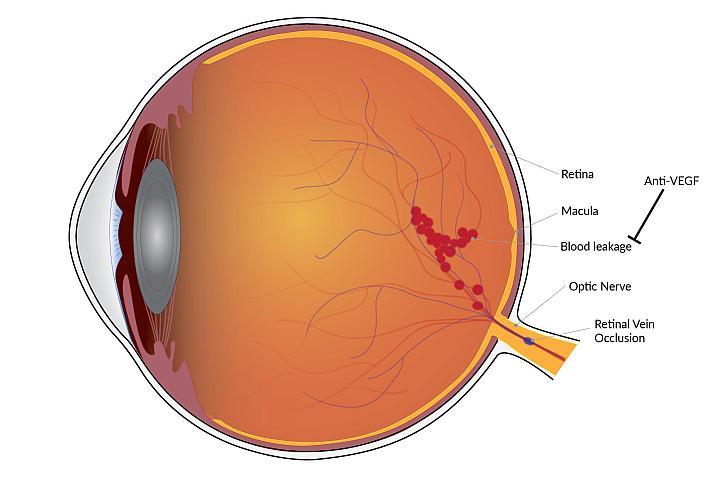Fluid buildup at the back of the eye can cause swelling and leaky blood vessels. This is called macular edema. If left untreated, it can lead to blurred vision and eventually blindness. Retinal vein occlusions are one cause of it. These are blockages in veins in the retina (the light-sensing tissue in the back of your eye). A new study showed that treating blockages brings long-lasting benefits.
The study compared two drugs: aflibercept (Eylea) and bevacizumab (Avastin). Both block a family of molecules called VEGFs. VEGFs are released when blood flow is disrupted, leading to macular edema.





